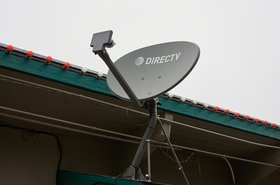Veon has signed a partnership with Japan's Rakuten Symphony to assist with the reconstruction of its infrastructure in Ukraine.
The duo signed a memorandum of understanding to push Open RAN technology as part of efforts to boost the country's telecoms services.
Veon said last week that under the terms of the agreement, the two companies will commit to creating “a robust and future-proof telecommunications infrastructure” that can deliver enhanced 5G, enabling the next generation of digital services in Ukraine.
As for the 5G rollout in Ukraine, Veon has identified the role that Open RAN can play in this, and so has signed up with Rakuten, which is one of the industry's biggest advocates of the technology.
Rakuten opened up its own Open RAN Customer Experience Center in the UK earlier this year, as part of a collaborative effort between Japan and the UK to work towards the European advancement of Open Radio Access Networks (Open RAN).
The partnership follows Veon's pledge that it will invest $600 million into its Ukrainian subsidiary Kyivstar in June.
Amsterdam-based Veon, which operates in six markets, said the investment will go towards upgrading the mobile operator's infrastructure, improving connectivity, and deploying 4G services across the war-torn country.
“Veon and Rakuten share a similar vision: we are both highly customer-focused, digital experience-oriented companies that redefine communications in our respective markets,” Kaan Terzioğlu, Group CEO, Veon said.
“We are very excited to partner with Rakuten to explore the opportunities in Veon's markets, with a combined population of 510 million. I am also delighted that we will start this work in Ukraine, where the country’s reconstruction is also a shared priority, as recently demonstrated by our $600m investment commitment."
Veon has further shown its support to its Ukrainian business, with the company quick to exit from the Russian market in the wake of the country's invasion of Ukraine.
The company gained government clearance to sell its Russian unit to local management in February, and it expects to complete its exit by October of this year.
Kyivstar's navigation of the war
Kyivstar is Ukraine's largest telco, counting 24.3 million mobile subscribers, plus 1.1 million fixed-line users on its books.
During Ukraine's war with Russia, the operator has provided its services to the wider Ukrainian population through measures including infrastructure sharing with other operators, and providing free WiFi to shelters and new settlements.
Much of the country has seen its mobile infrastructure hit by Russian rocket attacks, while Veon notes that Kyivstar's technical teams have carried out nearly 150,000 repairs since the invasion, adding it ensured that 93 percent of the network is operational.
In November, Kyivstar successfully restored connectivity in the south and east of the country, as Russian troops withdrew, with base stations in Kherson, Snihurivka, Staryi Saltiv, Lisne, and Velyki Khutory restored.
The investment in the operator's 4G network, is part of plans to cover 98 percent of Ukraine's population with 4G services within three years, including smaller, remote settlements.
Though registered in the Netherlands today, Veon's historical roots are in Russia. Russian telco PJSC VimpelCom was founded in 1992 in Moscow and launched the Beeline brand in 1993. The Netherlands-based VimpelCom Ltd. holding company was founded in 2009 and was renamed Veon in 2017. Today Veon operates telecoms brands across Europe and Asia, largely through its Beeline brand.







